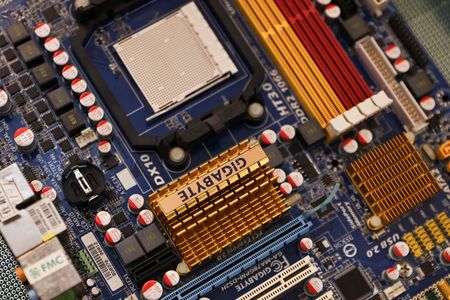By Sarah Wu
TAIPEI (Reuters) -The United States has convened the first meeting of a working group of East Asian countries to discuss how to strengthen the semiconductor supply chain, a Taiwanese official said on Friday, after a two-year global chip crunch.
The semiconductor shortage, which forced some carmakers to halt production, thrust chip powerhouse Taiwan into the spotlight and has made supply chain management a bigger priority for governments around the world.
“We exchanged views at a first preliminary meeting, and hope everyone can discuss how to collaborate in the future on supply chain problems like the ones we recently encountered,” Taiwan Economy Minister Wang Mei-hua Wang told reporters in Taipei.
The preliminary meeting of the working group – which has been dubbed ‘Chip 4’ – also involved representatives from South Korea and Japan.
The group’s member countries are home to the world’s largest contract chip maker Taiwan Semiconductor Manufacturing Co Ltd, South Korean memory chip giants Samsung Electronics Co Ltd and SK Hynix, and key Japanese suppliers of semiconductor materials and equipment.
President Tsai Ing-wen last month told visiting U.S. lawmakers that Taiwan is committed to ensuring its partners have reliable supplies of semiconductors, or “democracy chips”, and urged allies to boost collaboration amid intensified threats from China.
China claims democratically governed Taiwan as its own territory. Taiwan’s government rejects China’s sovereignty claims.
The American Institute in Taiwan, its de facto U.S. embassy, hosted the virtual meeting of the U.S.-East Asia Semiconductor Supply Chain Resiliency Working Group, a spokesperson told Reuters.
South Korea’s foreign ministry said the country’s top representative in Taiwan attended the meeting on Wednesday.
Kyung Kye-hyun, who heads Samsung’s chip business, said earlier this month that his company has conveyed concerns about the proposed Chip 4 alliance, including the need for South Korea to seek China’s understanding before any negotiations.
(Reporting by Sarah Wu; Additional reporting by Joyce Lee in Seoul; Editing by Edmund Klamann and Jan Harvey)





